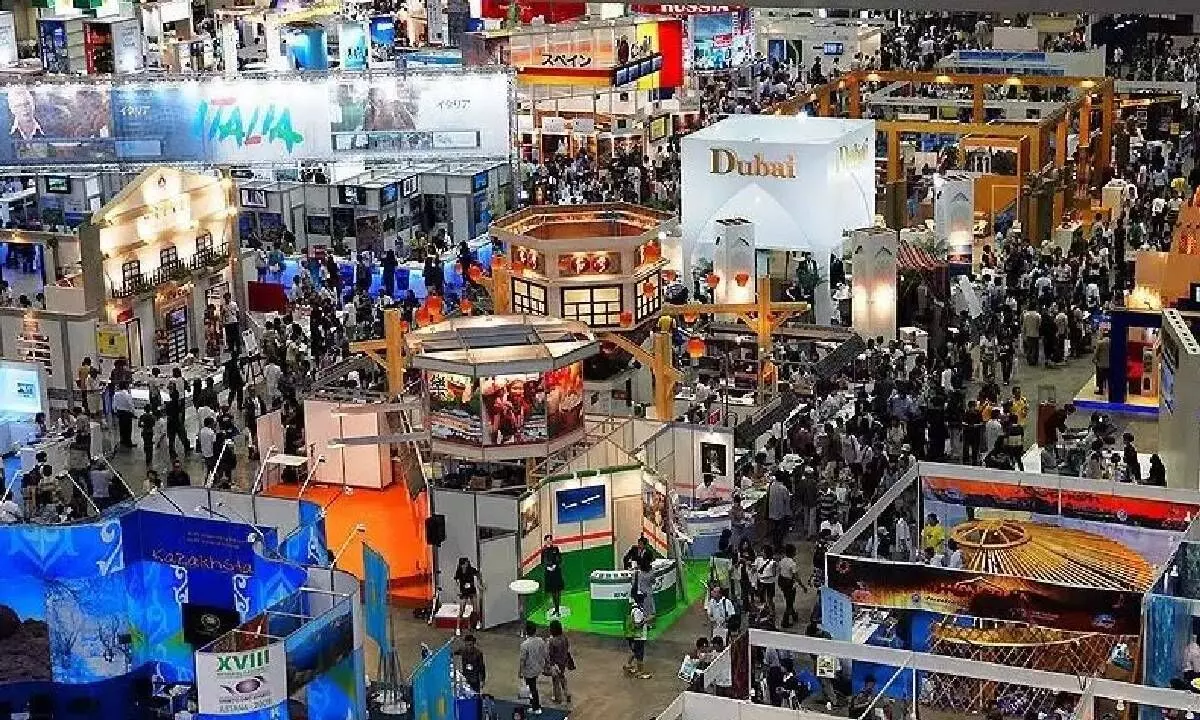Exhibition industry working towards a climate neutral economy now
Sustainability and eco-friendly approach are standout features of German trade fair industry
image for illustrative purpose

Whenever one thinks of the exhibition industry, the first things that come to mind are waste and environmental concerns. In order to do away with such synonyms that are detrimental to its very credibility, the industry, and its stakeholders, is putting greater emphasis on sustainability.
Since the industry’s pioneering years, makeshift stands, booths and sets of various magnitudes are constructed to make them appear as scintillating as possible, giving scant respect to what happens next. Soon after the purpose is served, these ‘creations’ are often thrown away and this generates considerable waste; not to mention nullifying the other sorts of value the materials or structures can provide such as repurposing elsewhere.
Over the last couple of years, words like ‘single-use plastics’, ‘sustainability’ and ‘eco’ figure prominently as keywords across all forms of media and advertising. This increase in awareness has had a positive impact on the industry. A greater thought is being put into the manner events and exhibitions ought to be organised to achieve sustainably, though there’s still a lot more to do in that direction.
In terms of production, there are many methods of creating a sustainable exhibition stand, from a modular framework and flooring with reusable graphics and floorcovering, to customized stands with minimal modifications to ensure their multipurpose uses.
On a smaller scale, a modular framework that forms part of a large set can have varied applications. Industry players are working on creating to create sets of graphics for each stand that are stored and re-used year on year. The flooring is reused along with the covering and we have constructed several plinths which are stored in the warehouse for sustainable and efficient use.
Recycled and recyclable materials along with customized FSC products like stands make an immediate and positive difference. It’s important to leave natural finishes intact too as this ensures easy recycling.
Effective carbon footprint reduction is the result of careful planning with logistics companies or internal fleets to ensure the greenest route of travel and efficient freight loading.
Giveaways and literature have long been the swag that delegates emerge from exhibitions and trade shows like bags, pens, USB drives or that new ‘eco’ mug. While the initial thought is to maintain brand front-of-mind awareness post-event, many of these items end up in drawers, cupboards or even in the bin. On that count, these giveaways could be labelled as environmental issues in themselves.
More thought and consideration need to be given to giving attendees a great reason to visit the stand without weighing them down with tangible goodies, which are likely to end up unused and discarded.
Future-oriented economy and socially responsible action go hand in hand: The German trade fair industry is setting to become climate neutral.
The German trade fair industry comprises numerous stakeholders which influence several industry sectors: site operators, trade fair organisers, exhibitors, visitors, and service providers.
“We will all work together responsibly to achieve our goals and to continuously improve and expand them in line with social, political and cross-industry requirements. We have compiled a positioning with nine components and thereby established a process which will be developed continuously,” is the current dictum.
Trade fairs are marketplaces for companies worldwide to exchange products and services and also to forge collaborations. Trade fairs are meeting places where industry partners act together as problem solvers and pave the way for a sustainable future while also devising measures to work towards a climate neutral economy.
The German trade fair industry fully supports the goals of the Paris Agreement of limiting global warming to 1.5 degrees Celsius. “Based on the many existing climate neutrality measures of numerous stakeholders within the trade fair business our industry sector wants to contribute to the achievement of the climate target. Thereby we act according to the principle of “avoid before reduce before compensate," explain the organisers.
The German trade fair industry will become climate-neutral by 2040, which by 2025 they will swear by 100 percent green power. As early as next year, the German trade fair industry will make sustainability a requirement in tenders with its industry partners. These goals were set by the 69 organizers, associations and hosts of trade fairs in Germany organized in the umbrella organization AUMA at their recent annual conference in Berlin.

